Sam McMillan United Kingdom
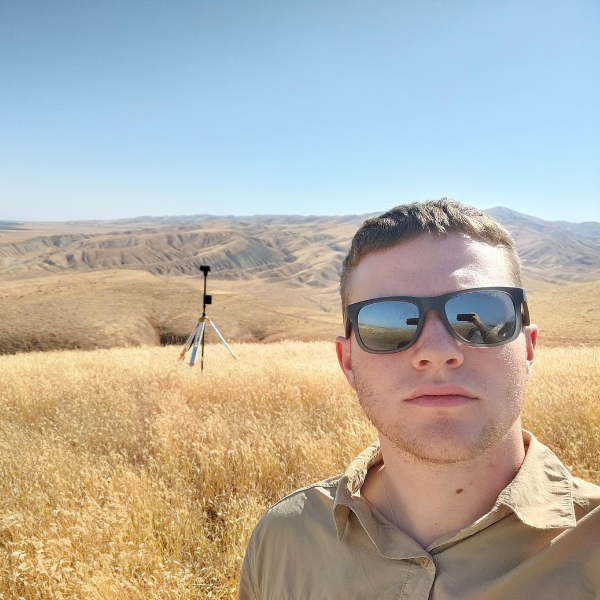
Geography is key to understanding and resolving many of the most pressing problems faced by society, including climate change, poverty, energy transitions, sustainable development and environmental conservation. Our degree programmes reflect these modern-day challenges, with core and optional courses aimed at producing highly skilled graduates who can think critically and develop solutions to tackle these problems.
Human Geography at Aberdeen is ranked 1st in the UK for student satisfaction by the 2022 National Student Survey, with an overall satisfaction score of 100%.
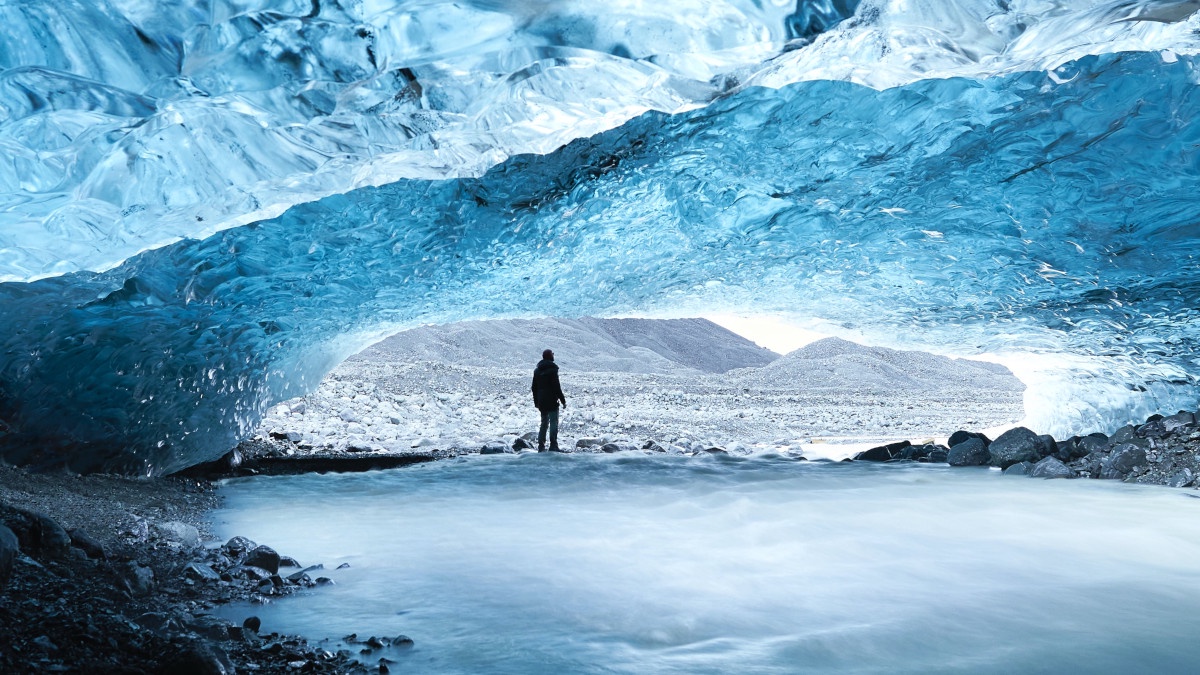
Our teaching is research-led, delivered by staff who are actively investigating some of the most important problems facing the world today – problems with social and environmental dimensions which geographical knowledge can help us understand and resolve.
In the First Year of your Geography degree, you will study two courses that provide an introduction to Geography in all its diversity. Both courses incorporate a workgroup programme alongside a lecture series covering aspects of Human and Physical Geography.
In Second Year and Third Year, you will begin specialising in the areas of Geography that most interest you or align with your career aspirations. In the Fourth Year, you will pursue an individual piece of geographical research in your Dissertation Project, often field-based, and choose courses that reflect the truly cutting-edge research strengths of the Department of Geography and the Environment in Aberdeen.
BSc or MA?
At Aberdeen, you can choose to study Geography through either the Bachelor of Science (BSc) or Master of Arts (MA) degree programmes. The main difference between the BSc and MA programmes is the other subjects you will study alongside Geography. For the BSc, these will be mainly science subjects, while MA students can choose subsidiary courses from across the humanities and social sciences. Both the BSc and MA Geography degrees are accredited by the Royal Geographical Society.
For more information about our courses, please visit the Department of Geography and Environment website.
15 Credit Points
This course reflects upon the role humans have played in creating the Anthropocene (the epoch we are now living in), a time period during which human actions have become more significant than natural processes in shaping our world. Drawing primarily upon perspectives from physical and human geography, the nature of the changes, “how did we get here?”, are considered, laying the foundations for GG1512, in which “what comes after?” – how contemporary society is attempting to tackle Anthropocene challenges – is debated.
15 Credit Points
This course interrogates the United Nation’s Sustainable Development Goals. These encompass contemporary global challenges such as responsible consumption and production, no poverty, clean water and climate action (challenges whose emergence is introduced in GG1010 Creating the Anthropocene). Drawing upon Human and Physical Geography perspectives, a ‘strong’ interpretation of sustainability, one where social and economic dimensions fundamentally rely on ecological foundations, underpins the course.
This course, which is prescribed for level 1 undergraduate students (and articulating students who are in their first year at the University), is studied entirely online, takes approximately 5-6 hours to complete and can be taken in one sitting, or spread across a number of weeks.
Topics include orientation overview, equality and diversity, health, safety and cyber security and how to make the most of your time at university in relation to careers and employability.
Successful completion of this course will be recorded on your Enhanced Transcript as ‘Achieved’.
Select a further 90 credit points from courses of choice.
15 Credit Points
This course introduces students to a range of scientific and social scientific skills and techniques used in Geography. The course content builds towards a residential field trip that takes place in the Easter vacation. Past venues have included the Isles of Skye and Arran, the cities of Inverness and Stirling, and Aviemore in the Cairngorms National Park. The trips enable students to put into practice the skills and techniques they have been taught through lectures and in workgroup sessions, and to conduct original research into geographical issues covered elsewhere on the programme.
Only available to students registered for programme year 2 of a Geography study aim or to students also taking at least 3 of GG2013, GG2014, GG2509 & GG2510
Select AT LEAST THREE of the following:
Plus select further credit points from courses of choice to gain a total of 120 credits.
15 Credit Points
This course provides an understanding of environmental processes and landscape change through time and space. The course places Physical Geography as an integral component of Earth System Science. The first half of the course explores physical environmental processes, whilst the second focuses on evidence of environmental change across a range of temporal and spatial scales. Three themes of glaciology, hydrology and palaeoecology will be explored to illustrate the linkages and interactions between process and form over a range of temporal and spatial scales. The course is team-taught by staff with an emphasis on using examples from recent research projects.
15 Credit Points
GG2014 examines political, economic, social and cultural change from a geographical perspective. The course consists of five distinct blocks, each of which introduces a specific sub-field of human geography – economic, urban, tourism, cultural and social geography. As a team-taught course, it makes use of a range of concepts and uses case studies drawn from the staff’s own fields of research. As well as geography, the course is designed to be accessible and relevant to students from other arts and social science disciplines such as anthropology, business, economics, history, international relations and sociology.
15 Credit Points
Interactions between human society and our environment have never been more complex or more critical in order to place us on a pathway to more sustainable future. This course explores the diverse approaches and perspectives that help us think about, explain and address all of the environmental challenges that we face in the 21st century. Students will be introduced to these approaches and perspectives and will have the opportunity to apply them across a range of regional and global environmental issues such as climate change, sustainable tourism, the energy crisis and the ozone hole.
15 Credit Points
In a digital era of GPS navigators and many online map tools (e.g. Google Maps), there is an increase demand for professionals able to understand and manipulate geographical data and use these to monitor processes at various scales. The course provides a solid background in the acquisition of geographical data, both onshore and offshore with classic field-based and remote sensing techniques. It covers the creation and interpretation of maps and looks at the history of remote sensing and its science as well as providing the essential basis to understanding what a Geographical Information System is.
Select ONE of the following:
Plus, select ONE of the following:
Plus, select further courses of choice to a total of 120 credits.
You are required to gain at least 210 credits from Honours courses in Geography across levels 3 and 4.
30 Credit Points
This core course is designed to introduce Honours students to key debates on the nature and scope of academic geography. Geographers past and present have studied a huge variety of phenomena using a variety of tools for investigating their subject. This course will help you understand this diversity. Example topics include: the changing meaning of the 'environment'; the use and abuse of statistical analysis; the influence of left-wing and post-modern perspectives, and the role of technology. Students may specialise in particular aspects, or mix-and-match across the breadth of the discipline, as you wish.
15 Credit Points
This core course is designed to introduce Honours students to key debates on the nature and scope of academic geography. Geographers past and present have studied a huge variety of phenomena using a variety of tools to investigate their subject. This course will help you understand this diversity. Topics include: the changing meaning of the 'environment'; the use and abuse of statistical analysis; the influence of left-wing and post-modern perspectives, and the role of technology. Students may specialise in particular aspects, or mix-and-match across the breadth of the discipline, as you wish.
15 Credit Points
This course is a mix of 1 hour lectures and 1 hour practical sessions using statistical analysis software (SPSS). It is very much a 'hands-on' course and a wide range of datasets are employed to give you confidence in the application of statistical techniques. The course is designed to give you the skills to undertake exploratory data analysis, test for relationships (using correlation and regression), and test for differences between sample data (from the Sciences and Social Sciences). Classical statistical analysis techniques are introduced and the value of multivariate statistics to detect patterns in complex data sets is also explored.
15 Credit Points
This course covers the practical aspects of remote sensing and GIS. It is entirely hands on, and students learn through a series of exercises that becomes progressively more challenging and more specific to different geographical disciplines. By the end of the course students will be familiar with key remote sensing and GIS software and will have learned their fundamental tools. These are highly demanded skills in the job market at present, so this course is strategic for those students potentially interested in a job where these types of tools are employed.
30 Credit Points
This core course builds on GG2508 to provide an introduction to the conduct of research in the Geosciences at an advanced level. It is intended to familiarise students with the skills necessary to design, implement and write up effective research. These skills will support work on undergraduate dissertations and other project work. The course also introduces careers research skills, and explores how you can best make use of your degree in the 'real world' after graduation: workshops run in partnership with the University's Career Service provide practical advice and training on how best to develop your career.
15 Credit Points
This core course builds on GG2508 to provide an introduction to the conduct of research in the Geosciences at an advanced level. It is intended to familiarise students with the skills necessary to design, implement and write up effective research. These skills will support work on undergraduate dissertations and other project work. The course also introduces careers research skills, and explores how you can best make use of your degree in the 'real world' after graduation: workshops run in partnership with the University's Career Service provide practical advice and training on how best to develop your career.
15 Credit Points
The fieldtrip explores the physical geography of a montane area, at present the Italian Alps. The course is based around a one week residential field-course located in the shadow of the Mont Blanc massif, supported by taught and student-led sessions on campus. Students have the opportunity to study the processes, forms and management issues characteristic of alpine landscapes: e.g., glacier dynamics and geomorphology, alpine hazards such as avalanches, mountain ecology and the dynamics of alpine rivers. Students complete independent projects, conducted in small groups, on topics they select themselves and which are developed with support from an academic supervisor. This provides the opportunity to develop important research and wider transferable skills.
15 Credit Points
The course is based around a one week residential field-course supported by taught and student-led sessions on campus. Students complete independent research projects, conducted in small groups, on topics they select themselves and which are developed with support from an academic supervisor. In previous years project topics have included transport, tourism, immigration, housing, and urban regeneration.
30 Credit Points
The Honours dissertation provides students with the opportunity to produce a piece of independent and original research on an approved topic. Advanced level knowledge of a sub-area of the discipline is developed through independent study supervised by a member of academic staff. This course is compulsory for any students completing a single Honours degree in Geography and for any joint Honours student who has not registered to complete a dissertation in their other Honours subject.
30 Credit Points
This core, 'capstone' course is designed to develop further students' critical understanding of the contemporary intellectual and real-world contexts in which the academic discipline of geography - and its graduates! - operates. The course involves the preparation of seminar presentations and short papers on a series of issues pertinent to contemporary geography. This work should showcase new philosophies and methodologies; and/or the relationships between geography and other academic disciplines; and/or applications of academic geography to real-world problems. Students also consider how they can best make use of their degree after graduation, with preparation of a reflective, career-planning report.
Select further 60 credit points from courses of choice, of which at least 30 credits must be from level 4 courses.
You are required to gain at least 210 credits from Honours courses in Geography across levels 3 and 4.
We will endeavour to make all course options available; however, these may be subject to timetabling and other constraints. Please see our InfoHub pages for further information.
Students are assessed by any combination of three assessment methods:
The exact mix of these methods differs between subject areas, year of study and individual courses.
Honours projects are typically assessed on the basis of a written dissertation.
The information below is provided as a guide only and does not guarantee entry to the University of Aberdeen.
SQA Highers
Standard: AABB*
Applicants who have achieved AABB (or better), are encouraged to apply and will be considered. Good performance in additional Highers/ Advanced Highers may be required.
Minimum: BBB*
Applicants who have achieved BBB (or are on course to achieve this by the end of S5) are encouraged to apply and will be considered. Good performance in additional Highers/Advanced Highers will normally be required.
Adjusted: BB*
Applicants who have achieved BB, and who meet one of the widening access criteria are are guaranteed a conditional offer. Good performance in additional Highers/Advanced Highers will be required.
* Including good performance in at least two Mathematics/ Science subjects by the end of your senior phase of education.
More information on our definition of Standard, Minimum and Adjusted entry qualifications.
A LEVELS
Standard: BBB*
Minimum: BBC*
Adjusted: CCC*
* Including good performance in at least two Mathematics/ Science subjects by the end of your senior phase of education.
More information on our definition of Standard, Minimum and Adjusted entry qualifications.
International Baccalaureate
32 points, including 5, 5, 5 at HL, with two Mathematics/ Science subjects at HL.
Irish Leaving Certificate
5H with 3 at H2 AND 2 at H3 including a minimum of H3 from two Science or Mathematics subjects.
Entry from College
Advanced entry to this degree may be possible from some HNC/HND qualifications, please see www.abdn.ac.uk/study/articulation for more details.
SQA Highers
Standard: BBBB*
Applicants who have achieved BBBB (or better), are encouraged to apply and will be considered. Good performance in additional Highers/ Advanced Highers may be required.
Minimum: BBB*
Applicants who have achieved BBB (or are on course to achieve this by the end of S5) are encouraged to apply and will be considered. Good performance in additional Highers/Advanced Highers will normally be required.
Adjusted: BB*
Applicants who have achieved BB, and who meet one of the widening access criteria are are guaranteed a conditional offer. Good performance in additional Highers/Advanced Highers will be required.
Foundation Apprenticeship: One FA is equivalent to a Higher at A. It cannot replace any required subjects.
* Including good performance in at least two Mathematics/ Science subjects by the end of your senior phase of education.
More information on our definition of Standard, Minimum and Adjusted entry qualifications.
A LEVELS
Standard: BBC*
Minimum: BCC*
Adjusted: CCC*
* Including good performance in at least two Mathematics/ Science subjects by the end of your senior phase of education.
More information on our definition of Standard, Minimum and Adjusted entry qualifications.
International Baccalaureate
32 points, including 5, 5, 5 at HL, with two Mathematics/ Science subjects at HL.
Irish Leaving Certificate
5H with 3 at H2 AND 2 at H3 including a minimum of H3 from two Science or Mathematics subjects.
Entry from College
Advanced entry to this degree may be possible from some HNC/HND qualifications, please see www.abdn.ac.uk/study/articulation for more details.
The information displayed in this section shows a shortened summary of our entry requirements. For more information, or for full entry requirements for Sciences degrees, see our detailed entry requirements section.
To study for an Undergraduate degree at the University of Aberdeen it is essential that you can speak, understand, read, and write English fluently. The minimum requirements for this degree are as follows:
IELTS Academic:
OVERALL - 6.0 with: Listening - 5.5; Reading - 5.5; Speaking - 5.5; Writing - 6.0
TOEFL iBT:
OVERALL - 78 with: Listening - 17; Reading - 18; Speaking - 20; Writing - 21
PTE Academic:
OVERALL - 59 with: Listening - 59; Reading - 59; Speaking - 59; Writing - 59
Cambridge English B2 First, C1 Advanced or C2 Proficiency:
OVERALL - 169 with: Listening - 162; Reading - 162; Speaking - 162; Writing - 169
Read more about specific English Language requirements here.
The University of Aberdeen International Study Centre offers preparation programmes for international students who do not meet the direct entry requirements for undergraduate study. Discover your foundation pathway here.
You will be classified as one of the fee categories below.
| Fee category | Cost |
|---|---|
| RUK | £9,250 |
| Tuition Fees for 2024/25 Academic Year | |
| EU / International students | £24,800 |
| Tuition Fees for 2024/25 Academic Year | |
| Home Students | £1,820 |
| Tuition Fees for 2024/25 Academic Year |
Students from England, Wales and Northern Ireland, who pay tuition fees may be eligible for specific scholarships allowing them to receive additional funding. These are designed to provide assistance to help students support themselves during their time at Aberdeen.
Further Information about tuition fees and the cost of living in Aberdeen
View all funding options in our Funding Database.
Studying Geography develops a range of transferable skills such as: critical thinking, research design, data analysis skills, proficiency in IT (GIS and remote sensing in particular) and the ability to communicate effectively in various formats. Geographers also acquire specialist knowledge of economic and environmental issues and the ability to evaluate these from different perspectives – local, national and international.
Employers value these attributes and with our Royal Geographical Society accredited degrees, Aberdeen Geography graduates enter a wide range of careers including: environmental management, conservation and planning, government agencies, business and commerce, and work involving technical skills such as surveying, GIS and remote sensing.
72% of Aberdeen geography graduates find employment within 6 months, while a further 22% go on to further study. An Honours degree in geography can also lead on to a higher degree, and a significant proportion of our graduates study for a Masters and PhD degree.
Geography graduates have gone onto work for a number of leading organisations, including:
You will be taught by a range of experts including professors, lecturers, teaching fellows and postgraduate tutors. Staff changes will occur from time to time; please see our InfoHub pages for further information.
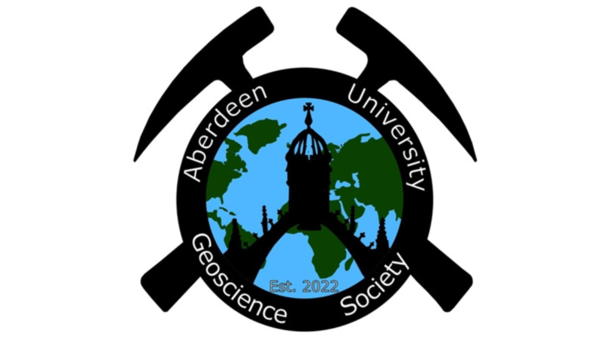
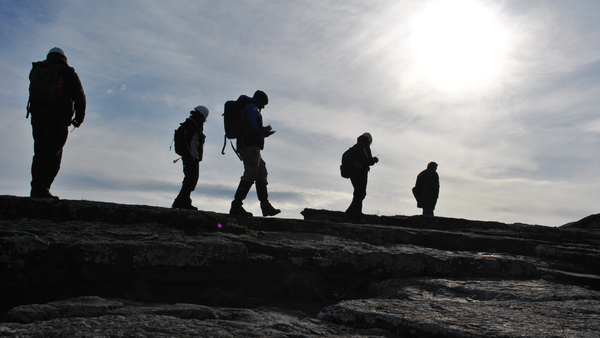
The Geography degree takes students on a range of local, national and international field trips.
Find out more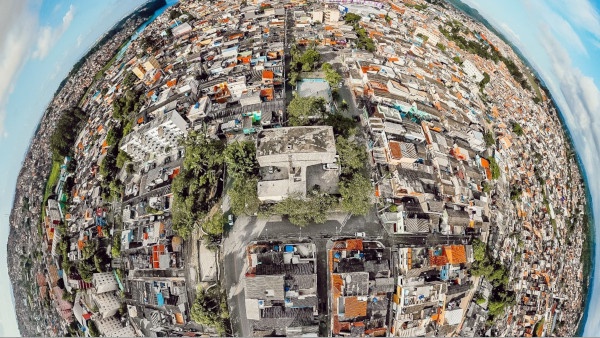
Visit the Department of Geography and Environment website for more information about our staff, teaching and research.
Find out moreDiscover Uni draws together comparable information in areas students have identified as important in making decisions about what and where to study. You can compare these and other data for different degree programmes in which you are interested.